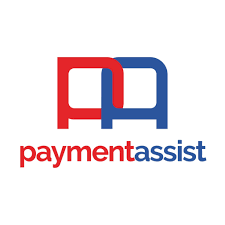The Top Companies Revolutionising Buy Now Pay Later
Category: Uncategorized
A popular form of consumer credit, ‘buy now pay later’ (BNPL) is a rapidly growing trend, with an increasing number of businesses now partnering with providers that offer this payment method. During the COVID-19 pandemic, use of BNPL products almost quadrupled in the UK, to £2.7b worth of transactions and 5m customers.
Here, we take a closer look at the BNPL sector, including how it works, how it’s regulated, and how established firms are responding. Plus, we’ve profiled eight buy now pay later companies in the UK that are driving innovation in this emerging market.
How does buy now pay later work?
BNPL is a form of short-term financing, sometimes called point of sale instalment loans.
Instead of paying the entire cost of a purchase at the online checkout or till, customers can pay in multiple instalments. With BNPL, customers typically pay a proportion of the cost upfront (usually around 25%), and then the BNPL company pays the retailer the rest. Customers then repay the BNPL provider through a series of interest-free payments, over a specified period of time.
Once a customer has selected the BNPL service at checkout, providers will do a quick check and approve them for the sale in just a few minutes. BNPL providers set a credit limit for each customer, based on their own algorithms and a user’s credit rating. Use of BNPL payment plans doesn’t currently impact a person’s credit score, unlike traditional credit cards. And as the credit checks are less thorough, it’s easier to be approved for BNPL than other forms of credit.
BNPL has been called ‘the future of millennial finance’, being used to spread the costs of shopping, which can be especially useful for people who need to complete a purchase ahead of payday. Instalment plans and payment terms differ depending on the BNPL provider, but customers usually have up to four months to pay it back, often through weekly, fortnightly or monthly repayments.
The repayment plan usually consists of interest-free instalments and can be completed through various payment options, including bank transfers or automatically through a customer’s debit or credit card. But while BNPL can offer users a more affordable and flexible payment method, customers may also be charged considerable amounts for late payments.
Who are the global BNPL industry leaders?
Swedish fintech Klarna is widely acknowledged as one of the major players in the global BNPL sector, having pioneered the trend when it was founded in 2005. Klarna currently has around 8m customers in the UK and works with more than 6.5k retailers. Klarna describes its BNPL offering as interest and fee-free, meaning it doesn’t charge for short-term products (products where the repayment period is 12 months or less) and has no hidden fees. In June 2021, the company launched an app for UK users to shop at any online retailer. This means users can now split any online purchase into instalments, even if the retailer hasn’t partnered with Klarna, for instance when shopping on Amazon.
Meanwhile, US startup Affirm is another leader in the BNPL industry. Like Klarna, Affirm doesn’t charge late fees for its off-card financing solution. In February 2021, Affirm announced its own debit card which offers a Pay in 4 feature. Increasing their reach, Affirm partnered with both Amazon and Apple in August 2021 (only to select customers right now, but it’s planning to extend this over the next few months). This will give users the ability to split purchases of $50 or more into monthly instalments.
Likewise, Australian firm Clearpay (called Afterpay in Australia, New Zealand and the US) is another global leader in the buy now pay later services space. It has a mobile app which customers can shop from or, alternatively, users can select the Clearpay payment method option at checkouts. Like most BNPL providers, Clearpay doesn’t charge for products where the repayment period is 12 months or less. The digital payments company Square (founded by Twitter CEO Jack Dorsey) has announced it will acquire Clearpay in early 2022, for $29b.
Then there’s online payments giant PayPal, one of the biggest players in the fintech industry to launch a BNPL service. In October 2020, the firm’s ‘Pay in 3’ feature was unveiled, allowing customers to make interest-free monthly payments, with no set-up fees. In September 2021, it also made the decision to scrap late fees, in order to compete with Klarna and Affirm.

How established banks and lenders have responded to BNPL technology
Monzo, one of Britain’s fastest-growing fintech companies, was the first major bank to join the BNPL trend. In September 2021, the challenger bank introduced its ‘Flex’ service, which allows consumers to spread the cost of purchases over three months, interest-free. The application process for Monzo Flex differs slightly from that of the big BNPL providers, as Monzo is subject to greater regulation: affordability checks will leave a ‘hard’ search on a user’s credit file, for instance. Monzo’s 5m+ users can use the Flex service at any retailer and secure credit limits of up to £3k, following their affordability check.
But Monzo isn’t the only UK challenger bank getting involved in the BNPL market, as Revolut is also planning to introduce BNPL services soon. The unicorn company was recently valued at $33b, after a massive $800m funding round in July 2021, with Schroders, SoftBank, and Tiger Global. Hoping to launch its BNPL offering as a trial next year, in selected European markets, it will implement a checkout feature that allows customers to automatically spread the cost of purchases across multiple instalments.
Meanwhile, peer-to-peer lending company Funding Circle launched its FlexiPay service in September 2021. Focused on small businesses, Funding Circle’s new BNPL offering allows SMEs to spread invoice or supplier payments over three months. FlexiPay has launched in beta mode to some of its existing customers, with interest-free repayments and a flat 3% fee per transaction. Funding Circle currently uses its own borrower base and credit checking system to make sure that only high-quality borrowers are approved. Zopa, another peer-to-peer lender, is expected to adopt a similar approach with the launch of its own BNPL service.
And in August 2021, Citi announced plans to launch a BNPL scheme in Australia, allowing customers to split purchase payments into four fortnightly instalments, anywhere Mastercard is accepted. For a $10 fee, this can be further split into eight fortnightly payments. Citi customers are able to use the service, Spot, online or in-store. The Spot card will be added to customers’ digital wallets and they’ll be able to link any card for repayments (unlike some BNPL providers, which require cards from a specific institution).
Regulation of buy now pay later companies
Regulation in the UK’s BNPL sector has been relatively lacking, which helps to explain the speed at which emerging buy now pay later companies have grown. Whilst BNPL is still mostly unregulated in the UK (barring a few exceptions, such as Monzo’s ‘Flex’ service), this is set to change very soon. In February 2021, the UK Government announced that BNPL will become a more regulated sector, to offer more consumer protection, according to Financial Conduct Authority (FCA) rules.
This means BNPL providers will be required to carry out the same affordability checks as other credit lenders. Currently, BNPL companies are not required to do a credit check, although most do perform soft checks (which don’t impact credit scores). These checks tend to focus on the risk for the provider, rather than how affordable it is for the customer, meaning many are at risk of taking on unaffordable levels of debt. Under the proposed new rules, BNPL providers will only be able to offer customers agreements that they can afford to repay.
Another change arising from the proposed new regulations is that customers will be able to complain to the Financial Ombudsman Service. This is an independent and official service which settles complaints—it can decide if lenders have treated customers fairly. Alongside the affordability checks, this should mitigate some of the risks attached to BNPL services. The Government is planning to consult with stakeholders before bringing forward the legislation, but it’s expected to go ahead in the near future.
8 fast-growing BNPL companies in the UK

Zilch
Founded: 2018
Founded in 2018, Zilch has developed a mobile app which provides users with zero-interest, staggered payments for online shopping. Based in Westminster, Zilch allows customers to spend 25% upfront, splitting the remainder of the cost over the next six weeks. And unlike a lot of other BNPL providers, Zilch is regulated by the FCA.
In August 2021, Zilch acquired US-based debt funding platform Neptune Financial (NepFin), with plans to expand into the American market. This acquisition comes after Zilch’s recent £79.9m fundraising with DMG Ventures and Goldman Sachs. To date, Zilch has secured six equity funding rounds, worth £170m in total.

Fly Now Pay Later
Founded: 2012
Fly Now Pay Later was founded in 2012 and is based in the City of London. The fast-growing fintech provides buy now pay later credit services for holidays, allowing people to spread the payment of their trips over a series of instalments. Users simply need to download the company’s app, select how much they need to pay for their trip, and then choose a repayment plan which works for them. So far, Fly Now Pay Later has raised £32.2m in equity fundraisings, across 12 rounds.

Butter
Founded: 2016
Butter is another BNPL provider aimed at both holiday-goers and general shoppers. Founded in 2016 and based in Tower Hamlets, Butter’s mobile app offers monthly payment options for customers booking trips (including flights and hotels) and for customers making purchases from online retailers. Butter also provides reward points which can be exchanged for travel discounts via Butter Holidays.
And in August 2021, the company announced the launch of ‘Butter X’, a new offering which allows payments to be spread over 10 months. This is a BNPL first, as most firms only offer instalments up to four months. Butter secured its first equity fundraising in March 2021, in a round worth £15.8m, with London-based corporate venture fund BCI Finance and angel investors.

Payment Assist
Founded: 2013
Founded in 2013, Payment Assist supports customers to pay their automotive bills, by allowing them to spread costs into monthly instalments over three months. For the last two years, the Leicestershire-based startup has featured on the FT 1000, which spotlights Europe’s fastest-growing companies. Payment Assist is currently partnered with over 7k companies, including big names like Halfords. In June 2021, it was announced that Australian BNPL provider Openpay would acquire the company, in a deal valued at up to £28.5m.

Playter
Founded: 2018
Launched in 2020, Playter is the world’s first B2B BNPL finance where access to capital is available from a SaaS subscription. The company allows UK startups and scaleups to transform invoices into a BNPL model, which they can pay back over a six month period. Having raised just over £1m in equity across three funding rounds, Playter is moving to allow invoices from any vertical to be paid on better terms and improve cash flow for businesses.

Cocoon
Founded: 2019
Based in Lambeth, Cocoon is a payments platform that enables businesses to offer smart instalment plans to their customers, without going through traditional lenders. In doing so, it aims to increase financial inclusion and grow revenues for its merchant partners. Cocoon enables businesses to automate customers’ payment plans, giving the business more time to focus on expanding.
Since being founded in 2019, Cocoon has raised £205k in equity funding, across two rounds. In November 2020, it was also awarded a £190k Innovate UK grant to develop its BNPL platform.

Hokodo
Founded: 2018
Hokodo is a BNPL solution for business-to-business (B2B) transactions. The company was founded in 2018 and is headquartered in Hackney. Hokodo develops Application Programming Interfaces (APIs) that enable B2B marketplaces to integrate insurance and financial products into their systems.
In 2019, it was accepted into the Mayor’s International Business Programme, an accelerator for fast-growing businesses based in the Capital and operating in the tech, life sciences, urban infrastructure and creative industries. That same year, Hokodo also featured on the InsurTech 100 and Oxbow Partners InsurTech Impact 25 high-growth lists. The company has so far raised £10.5m worth of equity fundraisings, across two rounds.

DivideBuy
Founded: 2012
Last but not least, Staffordshire-based DivideBuy was founded in 2012 and offers retailer financing solutions. DivideBuy develops web-based software which provides a credit lending service for retail businesses. Monthly repayment options vary, with the option to spread instalments over 12 months. For two consecutive years, DivideBuy featured on the Deloitte Fast 50 high-growth list, placing first overall in 2020 due to its ‘revolutionary approach to interest-free lending’. And with seven funding rounds under its belt, the firm has also raised £7.98m in equity investment.
Discover the UK's most innovative companies.
Get access to unrivalled data on all the businesses you need to know about, so you can approach the right leads, at the right time.
Book a 40 minute demo to see all the key features of the Beauhurst platform, plus the depth and breadth of data available.
An associate will work with you to build a sophisticated search, returning a dynamic list of organisations matching your ideal client.